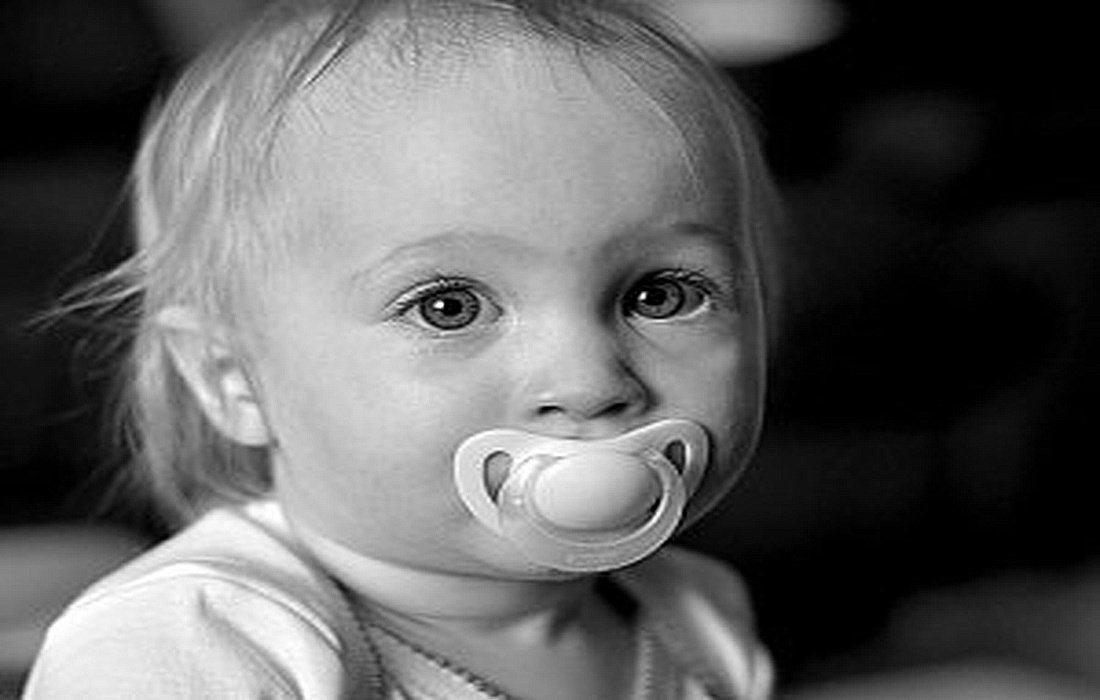Most ImportantEffects of Pacifierson Children’s Oral Health
One of the simplest tools that parents often use to soothe their infants is the pacifier. Sucking on a pacifier gives infants a sense of comfort and security, which is why they tend to suck their fingers or pacifiers when falling asleep or during situations like separation from parents. However, if sucking on a pacifier becomes a habit and lasts too long, it can lead to complications for the children, which we will discuss in this section ofSelMagzWe have elaborated on these effects.
Effects of Pacifier Sucking on Infants’ Health and Appearance
Causing Oral Sores and Allergies
No matter how clean a pacifier is kept, it can still be a breeding ground for various germs andparasitesand can cause infections, oral sores, andallergiesfor infants.
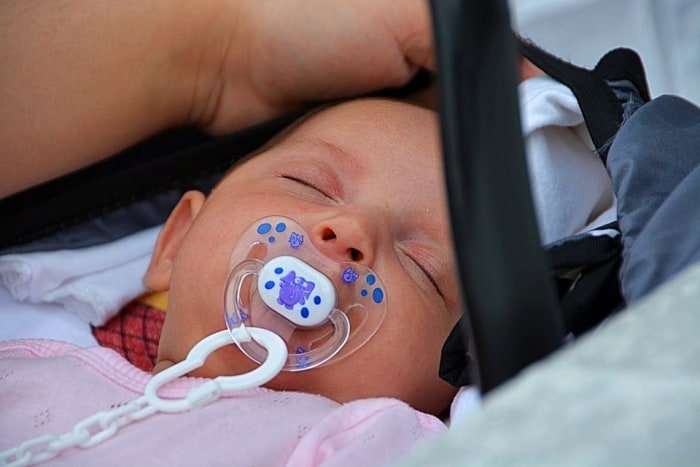
Delay in Speech Development
One of the side effects of pacifier use is a delay in speech development. The pacifier can interfere with a child’s ability to talk, so if your child is crying, do not offer them a pacifier or bottle; try to calm them using another method. Additionally, the pacifier and bottle nipples can affect the jaw and teeth structure, causing the tongue to protrude and leading to mispronunciation and swallowing issues.
Effects of Pacifiers on Children’s Jaws
Using pacifiers for infants can lead to changes in their mouth and teeth, causing issues like jaw protrusion, changes in tooth alignment, and constricted upper jaw arches. Pacifier use can also create problems with children’s tooth eruption.
If a child excessively sucks on a pacifier, it can create gaps in the front teeth of the upper and lower jaw, and by bringing the tongue into this space, it can worsen the gap. Because children’s jaw muscles have not fully developed, excessive pacifier use can lead to crooked teeth.
If a child quits using the pacifier after the age of three, any problems created in their jaw will resolve as they grow; however, continued pacifier sucking in childhood can cause permanent misalignment of teeth in adulthood. Variousorthodonticdevices cannot prevent the misalignment of a child’s teeth, so such pacifiers are not recommended.
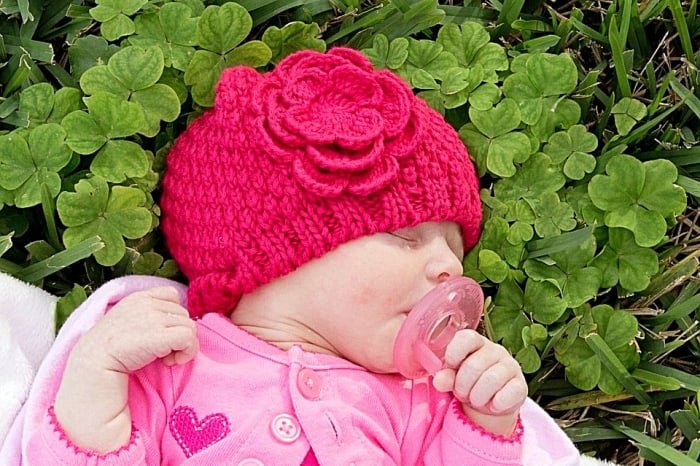
Middle Ear InfectionsSucking on a pacifier can increase the transmission of bacteria from the nasal passage and lead to middle ear infections in children. The risk of developing a middle ear infection is very low from birth up to six months, which is also when the risk of sudden infant death syndrome is highest.
Interference with Breastfeeding
Introducing a pacifier too early to an infant can interfere with their breastfeeding, leading to confusion between breast, bottle, and pacifier which may result in the infant not getting enough milk. An infant who becomes accustomed to sucking on a pacifier right from the start will struggle with proper breastfeeding.
Development of Gastrointestinal Infections
Using a pacifier can lead to gastrointestinal infections because infants constantly drop and pick it up again, allowing germs to accumulate.
Important Tips for Using a Pacifier:
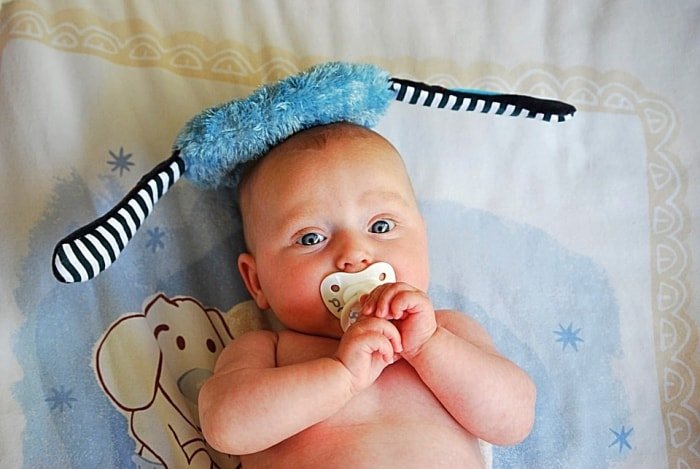
If the child shows no interest in a pacifier, do not force it on them.
- Buy a pacifier that has airflow holes on the body.
- Do not sweeten the pacifier with any kind of sweetener (sugar, honey, etc.).
- Boil the pacifier every day. Wash it with soap and water before use.
- Each day, soak the pacifier for a few minutes in equal parts of water andvinegarand let it air dry to prevent fungal infections. Avoid putting the pacifier in your mouth for cleaning, as this can transfer more germs to the infant’s mouth.Do not attach the pacifier to the child’s neck with a chain, as this can cause choking.Purchase orthodontic pacifiers, which are specially designed, as they interfere less with dental structure.
- Remove the pacifier from the child’s mouth while they sleep. If it falls out during the night and the child does not react, do not place it back in their mouth.
- To remove the pacifier from your child, do it gently and in several stages.
- Select a one-piece pacifier, as two-piece pacifiers can cause choking if broken.
- Replace the pacifier if there is any damage to it.
- Do not give a pacifier to infants younger than one month, and if the child is hungry, provide them with the breast or bottle as quickly as possible.
- Sucking Finger or Pacifier and Damage to Teeth
- One of the most common concerns among parents regarding the effects of pacifiers is their impact on the child’s jaw and dental structure. In this regard, SelMagz explains that prolonged sucking on a pacifier or finger can cause the front teeth of the upper and lower jaws to separate and deepen the child’s palate.
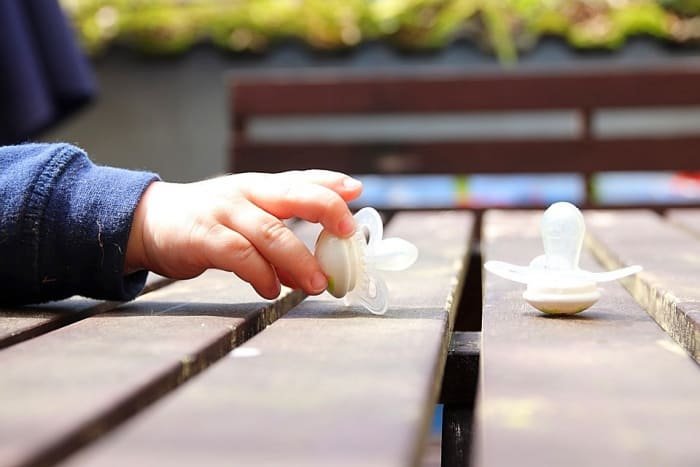
Some infants and children have a strong desire to suck their fingers or pacifiers, making it difficult to break the habit. Most children naturally lose the urge to suck by around two years of age, but if the child maintains this habit until the eruption of permanent teeth, it can seriously damage those teeth.
Sucking fingers is generally fine for children up to the age of four, but after that, it can create problems for their jaws and teeth due to excessive pressure. It’s easier to get a child to stop using a pacifier than to quit thumb sucking.
If you want to help your child stop sucking their thumb, do not scold or punish them; instead, reward them when they make efforts to quit the habit. They may suck their thumb in situations of
anxiety
Look for the cause of their anxiety and try to eliminate it, discussing quitting the thumb-sucking habit with them. If your methods do not work, consult your child’s dentist for advice on a device to help them stop.Effects of PacifiersImpact of Pacifiers on Teeth
Disadvantages of Using Pacifiers



